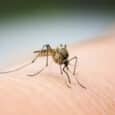You have fun outdoors or just leave the door open one night and before you know it, a hungry mosquito bites you. It doesn’t matter where. It could be on your arms, feet, neck, or even face, but the bites will always sting and become dark on your skin. Scarring can happen from nasty mosquito bites. This is called post-inflammatory hyperpigmentation. If you are suffering from post-inflammatory hyperpigmentation, there are many ways to eliminate the problem.
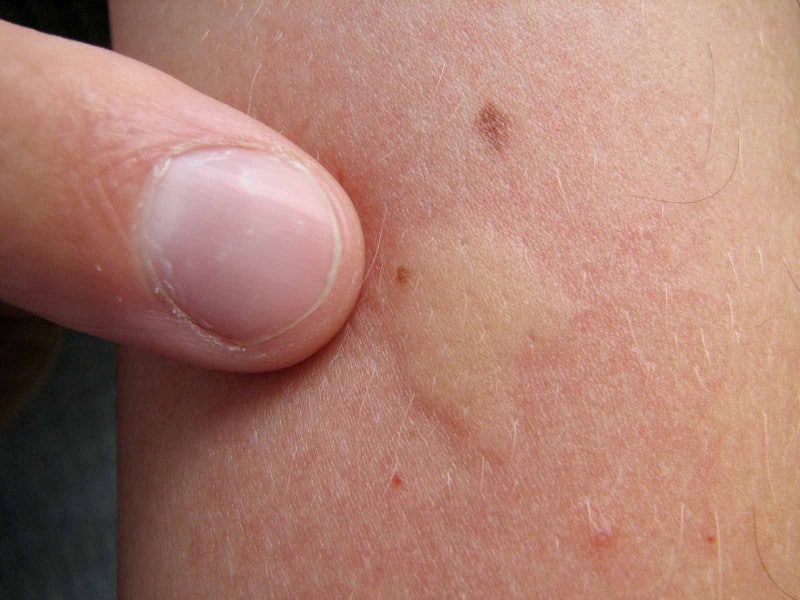
This condition is characterized by skin darkening in the affected area (part of the skin that is bitten, injured, or infected) because of an increase in melanin production left from the process of healing. The darkening can also result from the iron pigment that is left when old RBCs (red blood cells) die. People who have dark skin are more prone to post-inflammatory hyperpigmentation.
Post-inflammatory hyperpigmentation is manifested by red-brown or darker brown discoloration or the affected spot of the skin. The pigmentation varies in shape, location, and size. It depends upon the cause of the infection or injury. Light brown or dark brown spots on the trunk or face are usually left by acne. Exposed areas such as the legs and arms are usually affected by cuts, scrapes burns, or insect bites.
Types of Scars
Hyperpigmentation comes in different types. Before you choose your personal scar lightening or removal treatment, ask the help of your dermatologist with the kind of scars you usually develop:
- Hypertrophic. These are raised type of scars which are pink or red. They will disappear over time. They may be the result of surgery or burns. They tend to be itchy.
- Keloid. Keloids are large scars that develop from an injury or wound which heals on its own very aggressively. They tend to grow larger over time. They can even return after their treatment. They are common in dark skinned people.
- Contracture. These are scars that are caused by severe types of burns. They usually cover a large area of the skin. They feel tight around the joints and they usually limit the body’s range of motion.
- Atrophic. These are deep pits from chicken pox or severe acne.
- Stretch marks. These scars are reddish purple and are thin. This usually happens because of rapid weight loss or gain. They disappear eventually or even turn white.
- Dark spots. These are not scars. It is merely a type of post-inflammatory hyperpigmentation. Insect bites are the usual culprit.
Certain scar treatments can only work for specific scar types. Consult with your dermatologist for the right treatment. 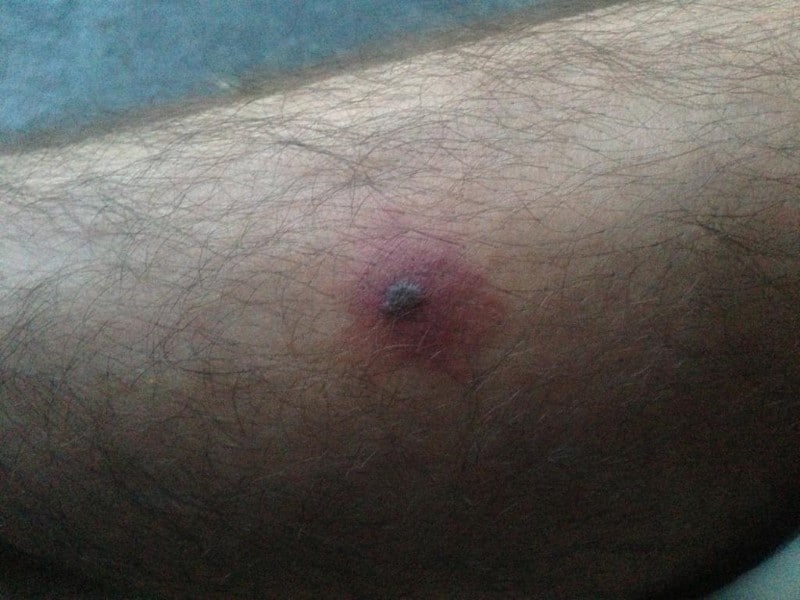
Post-inflammatory hyperpigmentation usually fades after many months. Those that appear on the leg area, usually do not fade anymore. Below are some of the pointers you should remember in taking good care of your affected areas.
- Apply sunscreen with at least SPF 15 or wear protective clothing that can shield you from sunlight. UV rays can cause the darkened area to become darker because of exposure.
- You can use concealers to cover the dark areas. There is waterproof makeup in the market formulated for legs and arms.
- Consult a dermatologist if you have an underlying skin condition such as acne.
- Bleaching creams are now being questioned by the FDA (Food and Drug Authority) about their safety. If you decide to try these products (at least 0.5% to 2% hydroquinone), stop using them if you the hyperpigmentation does not improve after 4 to 6 months.
- The stronger bleaching products from other countries may cause permanent loss of pigmentation or may even worsen pigmentation. It is advised for you not to use them at all.
- Aloe and cocoa butter are common home treatments, but there is no proof on their effectiveness.
- Cortisone creams thin the skin when used for an extended period. Talk to your physician about it.
- Other organic ingredients are effective in lightening dark marks:
- Vitamin E or aloe vera—applied to the mosquito bite to help heal the skin and reduce the redness. They are also great skin softeners and moisturizers. These ingredients help improve scar tissue and inevitably eliminate mosquito bite scars.
- Licorice—an anti-inflammatory and an antioxidant that has properties for skin lightening.
- Rosehip seed oil—evens out skin tone and reduces discoloration.
- Limes and lemons—naturally lighten skin.
- Tomato—natural skin lightening agent and exfoliant.
- Coconut oil—lightens dark spots.
- Papaya—evens out your skin tone and fades dark spots. You can mix green papaya with lime or lemon juice to lighten those darkened mosquito bites.
- Cocoa butter—is rubbed on the scar. Cocoa butter is effective in lightening any kind of scar (surgery scar, scar from a mosquito bite). Just rub cocoa butter on the scar every day until it fades. This ingredient improves the appearance of the scar even if it does not fade completely.

You should seek medical attention if you think the discoloration is already distressing or if you have a diagnosed chronic condition of the skin that leads to the darkening of the skin. Also, talk to your doctor, if you see a general change in your skin color without any reason.
Your doctor may prescribe some creams that can help fade the darkened skin. Glycolic acid, tazarotene, 2 to 4% hydroquinone, azelaic acid and tretinoin. Oftentimes, these products are combined to achieve optimal results. Microdermabrasion or chemical peels are skin treatments that are not usually covered by health insurance. You need to undergo these processes monthly (about 4 to 6 sessions). These procedures must be performed by the experts so that you won’t have to suffer from further darkening and irritation.
Sometimes, you just cannot help but scratch the mosquito bite or have an allergic reaction to it. When this happens, the hyperpigmentation spots appear. To prevent the darkening of the bite, you can use products that lighten the skin. Some doctors recommend hydroquinone (to help fade dark marks), but this solution can be a problem for people who are dark skinned. You can also choose to use treatments for healing scars.
Precautions in Lightening Darkened Mosquito Bites
- Remember that in lightening dark spots such as mosquito bites, you should apply sunscreen. Sun exposure makes dark spots even darker. In some cases, sun exposure makes the mosquito bite feel itchy again.
- Use hypoallergenic topical whitening ointments.
- Make sure that your product does not aggravate the inflammation or trigger an allergic reaction.
- Always perform a patch test on your inner elbow before you use any skin lightening product. This will determine if you have an allergic reaction to the product or not.
- Take note that you should leave the skin lightening agent on the affected area for about ten minutes before rinsing it. Understand that the lightening process may take two to three month.
- Select creams that also reduce the appearance of the bite scars. There are many products in the market but it is better to visit a licensed pharmacist and ask about various remedies.
- Always see a dermatologist. You can self-treat minor mosquito bite scars with OTC (over-the-counter) products. Yet if your scars are unsightly and deep, you should seek the help of a dermatologist. With the help of this medical professional, your scar can be removed through prescribed medication or even a surgical procedure.
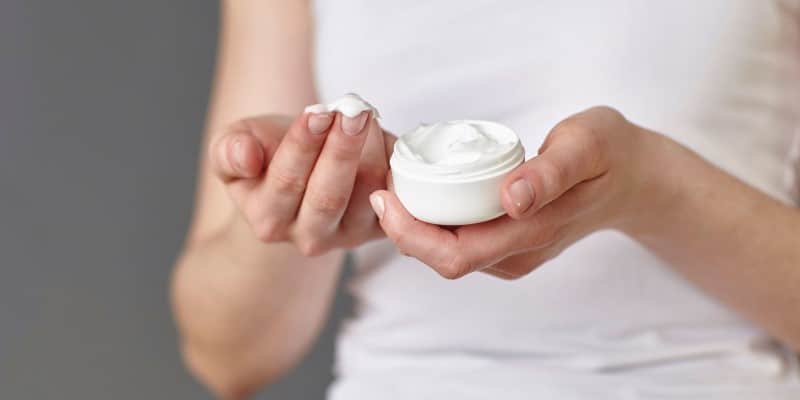
How to Prevent Scarring from Mosquito Bites
Mosquito bites tend to leave dark scars on hour arms or legs. If your skin is sensitive or fair, then these scars can take a long time to disappear. It’s a good thing there are some techniques and remedies are available to eliminate these unsightly marks:
- As soon as you are bitten, treat the mark. The scar is easier to remove when treated early.
- Apply vitamin E oil on the mosquito bite to encourage the skin to heal and to reduce its inflammation and redness.
- Rosehip seed oil is also a natural skin healer. Apply this on your mosquito bite to return the normal tone of your skin and to reduce its discoloration. Do this two times a day, until it disappears.
- Get fresh papaya, tomato, or lemon slices and rub them on your mosquito bites twice every day until the dark spots are gone. Fruits are known to lighten skin. Leave the juices of these fruits on your skin for about ten minutes and then rinse.
- Do not scratch if your mosquito bite is terribly each
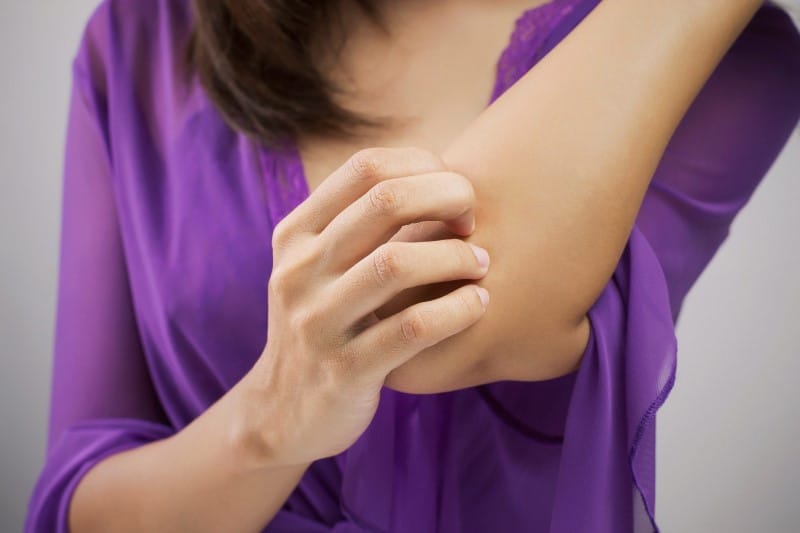
Yes, mosquitoes can cause hyperpigmentation. This skin trauma they bring is their bite, which leads to the discoloration of the skin. Are you a mosquito magnet? Then you are probably annoyed by the itching and, by the dark spots left. The moment a mosquito bites, it injects an anticoagulant into your system to make your blood flow easier. It also makes their feeding last long. During the feeding process, your skin is able to release histamine, which causes an inflammatory reaction. Inflammation causes the skin to swell up (bumpy) and become red. This redness and swelling disappears quickly, if it is not disturbed at all. But if you rub it, if you have an allergic reaction, or if you scratch it, the small bump swells up even more. It may even develop an infection.
Preventing Mosquito Bite Scars by Preventing Mosquito Bites
The most effective way to prevent mosquito bite scars is to prevent mosquito bites. Below are some efficient ways to do so:
- Start an insect-proof garden. Improve your existing garden by adding plants that repel mosquitoes naturally. Add chamomile, lemon basil, peppermint, lavender, citronella grass, rosemary, eucalyptus, and pyrethrum.
- Do not wear intense fragrances. All bugs are attracted to strong fragrances. To keep yourself on a low profile, avoid spraying on too much of your fragrance or any perfumed products such as scented lotions and hair sprays.
- Wear protective clothing. If you plan to go hiking or just have fun outside the house at night, wear a pair of long pants and a long sleeve shirt.
- Apply insect repellent on your skin. It is not always practical to cover up, especially during hot weather. This is when you should use insect repellent. Organic mosquito repellents are safer to use than repellents containing DEET. Natural oils such as lemon grass, peppermint oil (diluted with jojoba) and citronella oil.
Do Not Scratch
It is always difficult to not scratch the mosquito bite or bites. Scratching relieves the itchiness for a brief moment, but it also causes skin trauma that initiates hyperpigmentation. Scratching also allows bacteria from your fingernails and the tips of your fingers into the small breaks on the affected skin area. To reduce or eliminate itching follow these pointers:
- Cleanse the bite area. Get a gentle cleanser or soap and clean the affected area. Use soaps that are formulated to get rid of itching from plants such as poison ivy. These products are also effective in relieving itchiness from mosquito bites.
- Use anti-itch creams. Try to use anti-itch creams that relieve itch and pain at the same time. Some creams like this also cools your skin. The cooling effect is also good for relieving minor burns.
*** If the itching persists, you can use the following:
- Use hydrocortisone cream (gentle and relieves itching quickly)
- Apply calamine lotion. It is still undetermined if it does stop itching. Calamine lotion helps stop irritation and rashes brought about by mosquito bites. If you are nursing or pregnant, you should not use calamine lotion. Ask your physician if it will interact with the medications you are taking.
- Apply ice on the bite site. The cold relieves pain and swelling.
- Aloe vera. A natural anti-inflammatory agent that soothes itching and helps heal the affected skin area.
- Tea tree oil. Rub this oil on the affected area. Tea tree oil is a natural relief for allergic reactions and bacteria because of its antiseptic properties.
- Onion. A slice of onion should be rubbed on the affected area. Onions have an anti-inflammatory property. Just take note that it will sting once the onions are applied to affected area.
- Water and baking soda. Make a paste out of water and baking soda and applying it on the bite area.
- Colloidal oatmeal bath. This organic bath soothes itching.
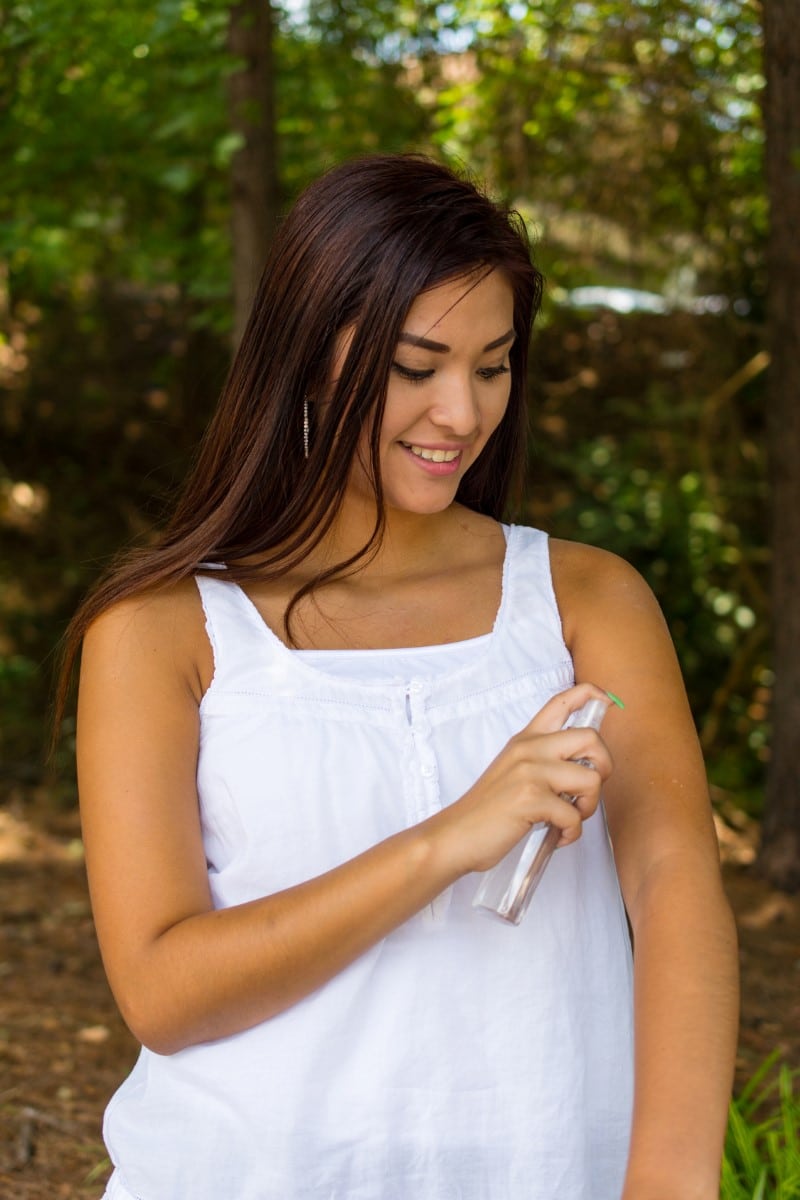
Ultimately, you can just prevent mosquitoes from biting you by wearing protective clothing or using repellents. Mosquitoes will always surround us. When we forget to protect ourselves from their bite, post inflammatory hyperpigmentation or scarring may develop. Preventing mosquito bites from scarring is a tedious task, but with the right guidance from your dermatologist, you can lighten them and improve their appearance.


